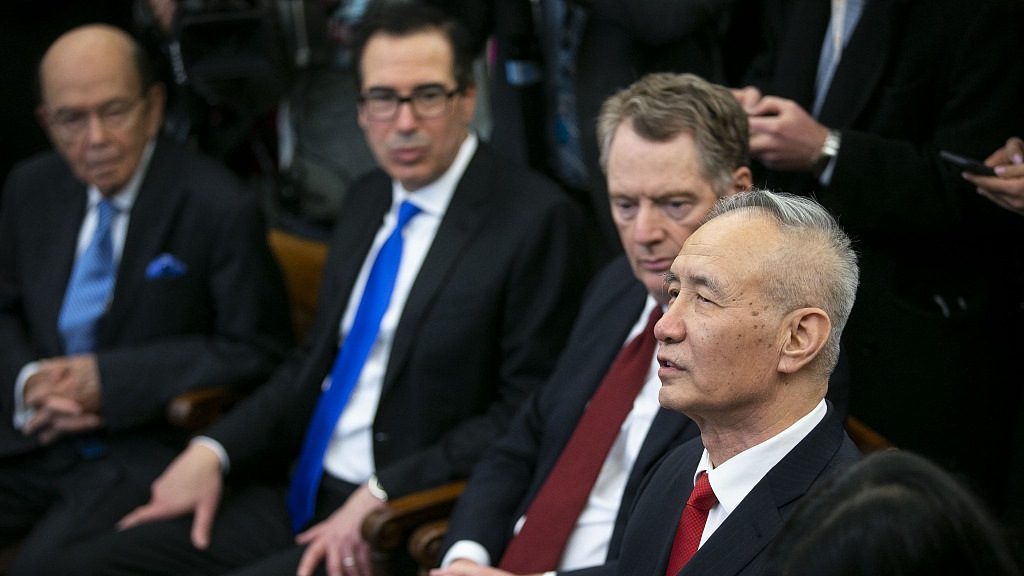
TV Show
13:07, 06-Apr-2019
Will China-U.S. trade disputes be seriously addressed this time?
The Heat
00:55

Chinese and U.S. officials continued to meet in Washington in an effort to end the nearly year-long trade war.
According to media reports, a new consensus was reached on the text of a trade agreement between Beijing and Washington. After a meeting with Chinese Vice Premier Liu He at the White House's Oval Office, U.S. President Donald Trump reportedly said, "We're getting very close to making a deal. That doesn't mean a deal is made, because it's not, but we're certainly getting a lot closer. We'll know over the next four weeks if the two countries have a deal."
Although an agreement may be within reach, the two sides reportedly remain apart on some key issues. Many are expecting a summit between Trump and Chinese President Xi Jinping in the future to make actual moves.
Jeff Moon, an American international trade consultant, believes that the negotiation is very helpful and constructive, as it helps to process the issues that require a mechanism and clear benchmarks. According to Moon, before Trump came into office, there was an annual joint commission on commerce and trade that handled trade issues. "It was very similar in process to what has been described by [Robert] Lighthizer," Moon said.
In terms of the tariff issue, Moon believes that consequences are the bone of contention. In his opinion, the principle cause of the failure of previous trade agreements between China and the U.S. was the lack of consequences. "There need to be consequences," Moon said.
"It is not to the advantage of the American businesses or consumers to keep paying for these tariffs," said Yan Liang, head of Willamette University's Department of Economics. "China has made many concessions in many important fronts, and I think it's important for the United States to phase out the tariffs."
The U.S. reportedly wants to keep China happy because the ultimate goal is to have a nuclear deal with the Democratic People's Republic of Korea (DPRK). Some are expecting China to help with the DPRK issue while trying to calm the trade war with the U.S.
"Linking those two [issues] was an enormous mistake," Moon said, adding the U.S. should keep the DPRK issue and trade issue in separate lanes similar to what was so before the Trump administration.
While it is increasingly difficult for both countries to cooperate in research and I&D, John Gong, a research fellow at the Charhar Institute and professor at the University of International Business and Economics, thinks that the U.S. government is already adopting a decoupling strategy in the technology area. MIT just announced that it will sever ties with ZTE and Huawei, which he considers a result of the U.S. government, and the trend is likely to continue regrettably, Gong said to CGTN.
The Heat with Anand Naidoo is a 30-minute political talk show on CGTN. It airs weekdays at 7:00 a.m. BJT and 6:00 p.m. Eastern in the United States.
(If you want to contribute and have specific expertise, please contact us at opinions@cgtn.com.)

SITEMAP
Copyright © 2018 CGTN. Beijing ICP prepared NO.16065310-3
Copyright © 2018 CGTN. Beijing ICP prepared NO.16065310-3